Rhodes Scholar Oliver Douglas on his move to England’s prestigious Oxford University
South Australia’s latest Rhodes Scholar Oliver Douglas has already packed a lot in his short life. But it’s the future that has him, and some in the Liberal Party, very excited.
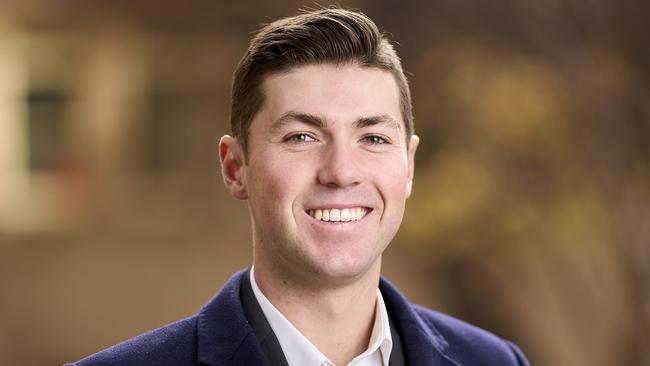
SA Weekend
Don't miss out on the headlines from SA Weekend. Followed categories will be added to My News.
Oliver Douglas wants to restore faith in democracy. No easy feat at this point in time when trust in politicians and political institutions have arguably never been at a lower ebb.
Douglas is only 23 and has some of that idealism of youth about him, but he’s also managed to pack a lot into his short life and it would be more than unfair to call him naive.
He won a series of scholarships and prizes at school and university, held a world tennis ranking, is a lieutenant in the Australian Army. He has launched an app with brother Patrick. And is also now a Rhodes scholar.
He has also been tipped as a future leader of the Liberal Party.
“I think one of the things that I find concerning as a young individual is trust in government is generally at record lows,’’ he says.
“And yet we live in a time where we’re facing enormous complex challenges, climate crisis, wealth inequality, national security, geopolitical instability in our in our region.
“It’s probably not a great place to be in where you’ve got huge problems that require significant political will, or political action, government action, and we have record low faith in those institutions.’’
Douglas is a member of the Young Liberals and describes himself as a “classic Liberal”.
He is worried that the extremes on both sides of politics have hijacked public debate.
“The voices on the extremes of our political spectrum, because they’re so vocal, they dominate that discourse, where we need people in the centre, voices who are considered and moderate to speak a bit more clearly about the value proposition that they’re offering.’’
But he has also found trying to combat those voices can be difficult.
“I’ve articulated my views for where I think the party in South Australia broadly should be headed,’’ he says.
“People don’t always agree with the vision that I’m offering. I think there’s a lot of people getting swept up in the broader forces of the moment and to challenge the forces of populism and things like that today is not an easy thing to do.’’
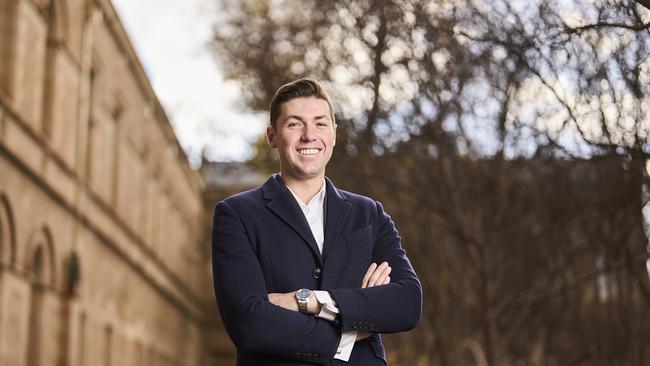
The crisis Douglas sees in modern Australian democracy is something he will examine as part of his Rhodes scholarship at Oxford.
But he is going to do it by looking backwards, to see what lessons can be learnt from the past and applied to modern life.
In particular, Douglas is looking at British history from 1850 onwards to see what challenges democracy has faced since that time and how it coped.
The idea being that as Australia has taken its political institutions from Britain, there could be much to learn.
His broader goal being to find ways to strengthen democratic institutions.
It’s also a bit of a homecoming for Douglas, who was born in London.
The Douglas family moved to Australia in 2005, when father Andrew, who was a policeman in England, moved as part of an SA Police recruitment program.
Andrew Douglas had also been in the Royal Marines, including serving in Croatia as part of a NATO-peacekeeping force, before joining the police. He now works in the Australian Taxation Office.
His mother, Albertina, was born behind the Iron Curtain in what was still called
Czechoslovakia.
His mother’s stories of growing up under a Communist regime, he says, gave him a “grounding’’ and informed his own political views.
Albertina, who works in a pharmacy in Seacombe Gardens, took part in the Velvet Revolution in Czechoslovakia in November and December 1989, which brought down the Communist government that had ruled for more than 40 years.
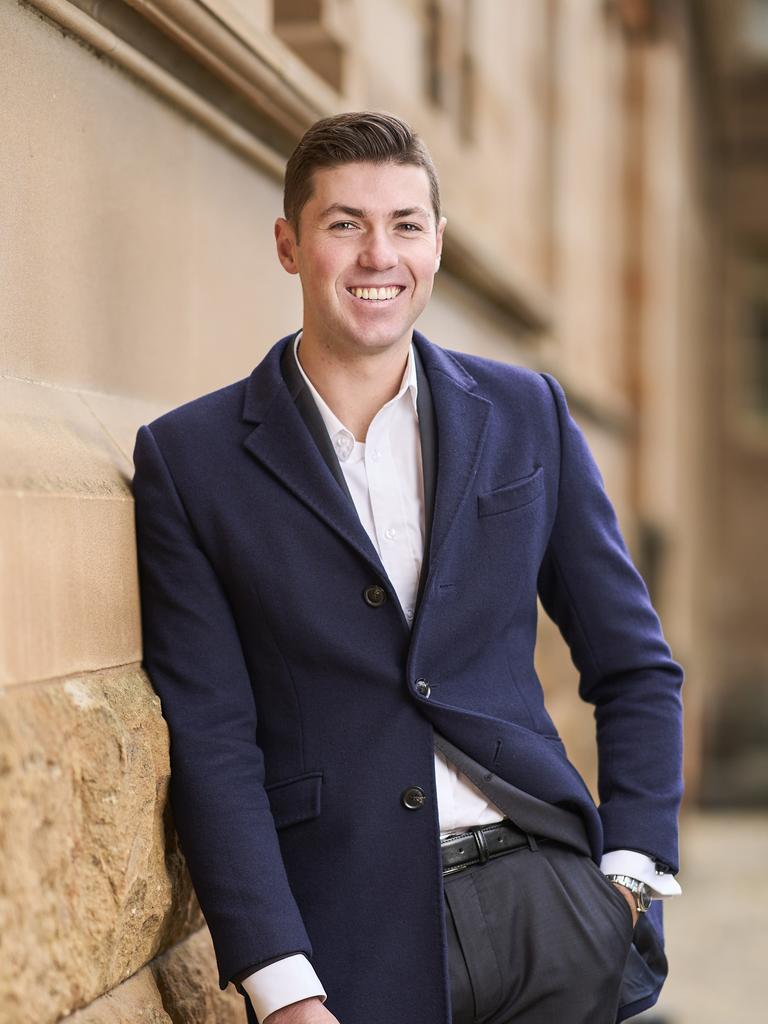
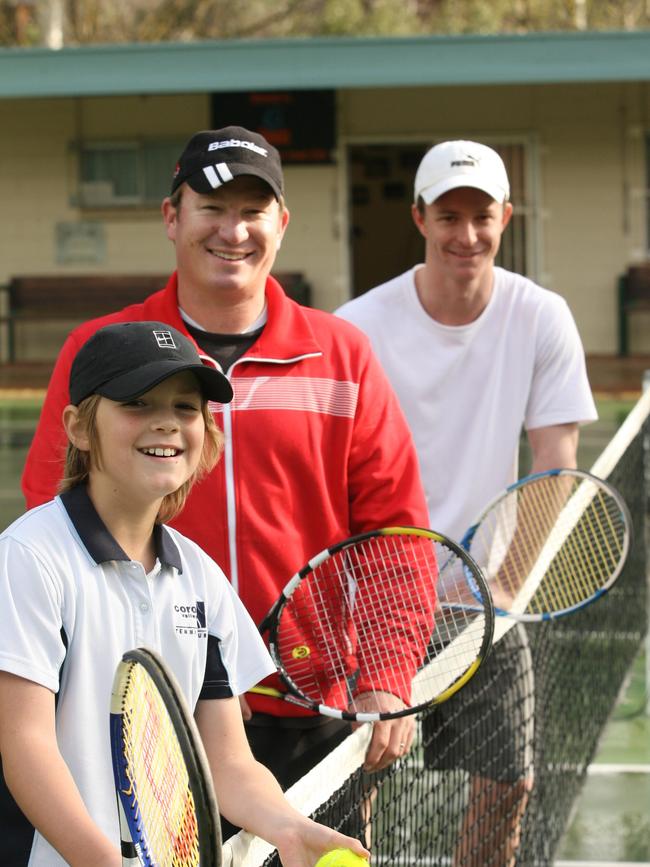
“She was born in 1973 and so lived through the latter half of that and raised me passing on some fascinating stories about state censorship control, curtailed civil liberties and things like that,’’ he says.
Or even how his mother’s family found out about the 1986 Chernobyl nuclear disaster, which was only about 1000km away, not from local authorities but from foreign media.
“The first they heard about was Swedish Free Radio going, ‘Oh, there is sort of a radioactive cloud, going across Eastern Europe’.’’
After the fall of Communism, Douglas’ mother moved to England, speaking none of the language, and met his father when she was managing a Spanish restaurant in London.
In Adelaide, the family settled in Coromandel Valley and Douglas remembers an “idyllic’’ childhood, playing cricket and tennis and living an Adelaide Hills’ kind of life.
He attended Coromandel Valley Primary School, then won a scholarship to St John’s Grammar in Belair.
But it wasn’t a childhood without its setbacks. Douglas estimates between the ages of five and 15 he was operated on around 30 times at the Women’s and Children’s Hospital. In one year at primary school, he missed 80 days of school.
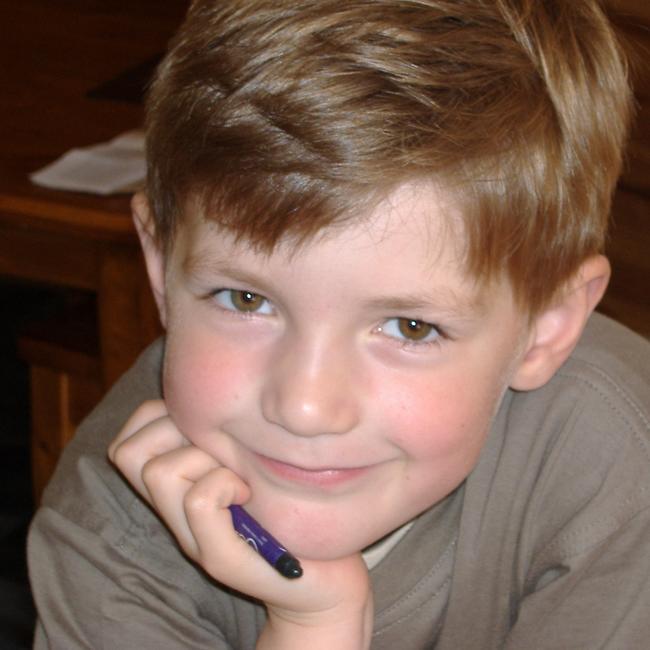
Douglas won’t go into detail about the nature of the problem, only saying he was battling a “recurring medical issue’’.
“I will never forget long days spent in agonising pain, my parents’ distraught faces, and that distinct sterile hospital smell – a smell I hate to this day.”
He says the memories of his younger self serves as a “source of inspiration’’.
“It asks me to use those painful memories both as a motivator to live a full life and to remain compassionate with others – our struggles are not always immediately clear.’’
On the bright side, missing all that school meant he also had to develop other skills.
“One of the sort of by products of always having to catch up on schoolwork is that I always from a young age had to be very organised and diligent in that sense. And I think that’s the sort of hangover effect that’s sort of maintained my latter life.’’
It was also a time that saw Douglas download a “million documentaries’’ and nourished a love of history that will carry him all the way to Oxford University later this year.
After school he decided to take a gap year to pursue another love – tennis.
He worked with Thanasi Kokkinakis’ coach Todd Langman and was ranked as the best under-18 player in SA and the 55th best player in Australia. But that was as far as it went. In the end, he says, it wasn’t that difficult to give up the dream.
“And sort of I got to the point where it’s as good as I’ll ever be,’’ he says. “And to improve further would mean giving up almost every other part of his life.
“If you wanted to be a full time sort of tennis player, I’d have to be training day in, day out. And maybe I could have done my uni studies at the same time, but I wouldn’t have been able to do them as well. I wouldn’t have been able to get involved with sort of university life and things like that,’’ he says.
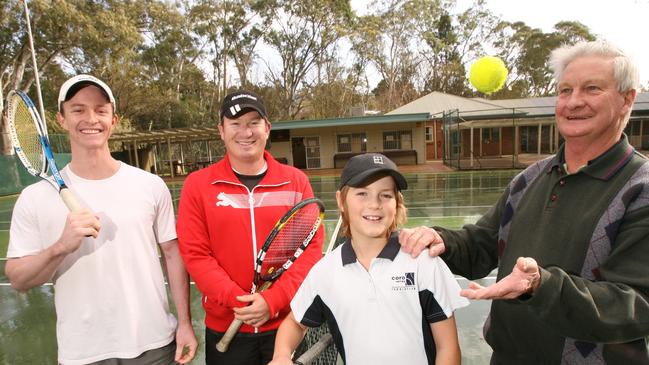
Douglas’ original plan was to go to Australian National University in Canberra and study law and commerce but decided to stay at home.
He won a scholarship at St Mark’s in the city and decided to study law and arts at Adelaide University.
His arrival at St Mark’s coincided with the Covid-19 pandemic and all that followed.
While many students left, he remained in the college, although social distancing was still in force. It meant that for late-night movie viewing, there had to be some careful seating arrangements.
Douglas being a stickler for rules, was keen to comply. So while two people would sit inside the TV room “you’d have two people in the hallway watching the TV through the door to adhere to the 1.5m rule”.
Douglas’ uni plan also changed. While he loved the history aspects of his arts degree, he struggled to muster similar enthusiasm for law.
“It just wasn’t resonating with me the same way,’’ he says. “I felt like I was being intellectually exercised in a way that I really enjoyed in my history studies, that law was partly there, but I just didn’t quite fall in love with it in the same way.’’
By his fourth year at uni he had dropped law and undertook honours in history.
He decided to do a thesis on the Howard government’s decision to build the Christmas Island detention centre.
As a migrant himself, Douglas had taken subjects which looked at Australia’s migrant history.
He had examined Federation in 1901 and the unwinding of the White Australia policy in the 1970s.
In part, it was because he wanted to better understand the country he now called home, but also he wanted to understand how decisions are made within government.
It’s a theme he will continue to develop at Oxford University, intertwined with that desire to understand what is happening to democracies in the western world.
“I’m a huge believer that humanities has utility in terms of generating better decision makers, understanding the context of the past and things that we need to solve some of the problems that we face,’’ he says.
Douglas will be at Oxford for three years. Beyond that he is still unsure what will be his life course.
There is a chance he will remain in academia, and is planning to write a book that will emerge from his Oxford study.
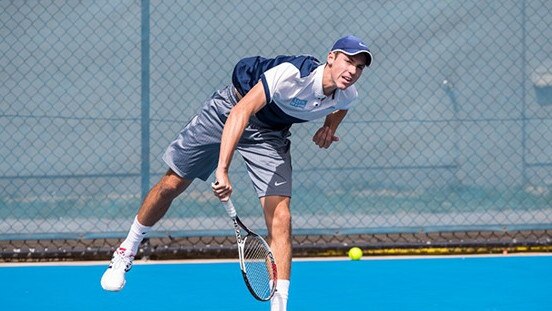
Another option is to remain in the military. Douglas has been serving as a full-time lieutenant in the first armoured regiment for the last six months, participating in battle exercises in places such as Cultana near Whyalla in the north of SA.
Then, of course, there is politics. At least one senior Liberal has called Douglas the “hope of the side’’. But that is no guarantee of progress.
Douglas’ description of himself as a “classic Liberal’’ translates into a belief that individuals can make the world a better place.
He believes in the value of institutions whether that be parliament, churches or courts. In classic Liberal style he believes in government, but only up to a point.
“You need government to assist and set parameters. But government just physically can’t do everything,’’ he says. And nor would it be healthy if it could.
“If you have a very large government apparatus then the risk is that any government of the day can use that apparatus to enforce their will on people,’’ he says.
Douglas’ problem could be in finding a spot in the current Liberal Party, which is drifting towards an ever more conservative stance on many issues and is dominated in South Australia by its right faction.
Douglas says having his voice heard is becoming increasingly difficult.
“We should live in a time of society that accepts a whole range of views and a range of things but frankly that’s an idea that seems not to be the flavour of the month on either end of politics,’’ he says.
Douglas hesitates when asked about current political leaders he admires.
Instead he delves back into history and mentions names such as Australia’s longest-serving Prime Minister Robert Menzies and assassinated US President John F. Kennedy.
Another name mentioned is Charles Hawker, who was a minister in the government of Joe Lyons in the early 1930s.
Hawker was born near Clare and was severely wounded in WWI.
Hawker quit the Cabinet when the government would not reduce the salary of MPs during the Great Depression.
Douglas’ scholarship that allowed him to attend St Mark’s was named after Hawker.
“The sort of following that he still enjoys today is a product of his integrity, moral courage and doing what’s right,’’ Douglas says.
“And I think that if we saw politicians taking those sorts of actions today – how much more trust do you think people would have in the system?’’





